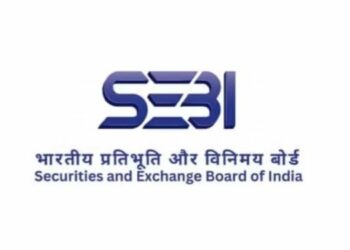Mumbai: In a new report that shows the pulse of small and micro business across India, OkCredit has revealed that the latest surge in infections has not been as catastrophic for SMBs as last year.
OkCredit is a bookkeeping app that digitises books or the “bahi- khata” for small businesses. It has more than 2.7 crore registered merchants on the platform across 95% pincodes, giving it a close peek into the SMB economy.
The primary reason for this moderate impact has been absence of a national lockdown this year as compared to a harsh lockdown in March 2020 which forced several businesses to shut down.
This year however, states have taken a more relaxed approach towards lockdowns keeping the economy in mind.
According to the study, medical stores witnessed a sharp 32% transaction growth this year in comparison to an 18% decline in the corresponding period of last year due to a sudden increase in demand for medical supplies and rapid adoption of digital bookkeeping applications by pharmacy stores. The data has been taken for last week of March 2021 up till May 2021.
Electronics, Fruits, vegetables and dairy were other categories to register a 5% uptick each in transactions. The number of customers per merchant has actually increased indicating that more and more merchants are resorting to digital bookkeeping and enrolling customers when compared to the previous wave.
At a lot of locations, state government gave prior notice before implementing the lockdown. This gave merchants time to prepare in advance by adding customers digitally.
Kirana stores have seen 7% increase in customers and so have fruit/vegetable dairy shops, mobile recharge stores and electronics stores. The increment in the number of customers per merchant in essential services, implies that a lot of customers might have stocked up goods prior to the lockdown announcement. Within the number of customers, the active customers has seen a drop of only 16% vis-a-vis 40% in 2020. Active customers in the case of groceries have increased by 6% when compared to pre-covid period last year.
However, there is still a drop of 6% when compared to Feb’21. There could be two reasons for this decline- for one, this might be because of many customers moving to online retail and second many grocery stores are finding it difficult to procure stocks.

“While the impact has not been as disastrous as last year, the fact remains that small and micro businesses are struggling. For some of them cashflows have been severely affected and for others customers have moved online. Besides, the scare of the virus has ensured that a lot of them remain shut. We need a calibrated policy approach from the government to support these small and ultra-small entrepreneurs”, said Harsh Pokharna, Co-founder and CEO, OkCredit.
That businesses this year have been more resilient and have learnt lessons from the first wave is also evident in the data on transacting merchants.
During the 2020 lockdown, there was a 32% decline in the number of transacting merchants, compared to just 9% this year. Categories, where this decline has been minimal, are medical stores, kirana, hardware, electronics, repair services and Fruit/vegetable/ dairy.
The unorganised retail in India runs on credit. For buyers, it is about convenience to buy whenever they want and for merchants it’s an effective customer retention tool.
Due to the pre-announcement of lockdown the business had time to prepare and as a result outstanding credit amount has decreased by 50% during the second wave. Last year, the abrupt lockdown meant that businesses had huge outstanding credit, squeezing their cash flows and pushing them to bankruptcy.
Tier 3 towns have been least impacted, as was also observed during the first wave, with close to 66% transactions remaining active as compared to 36% last year.
















